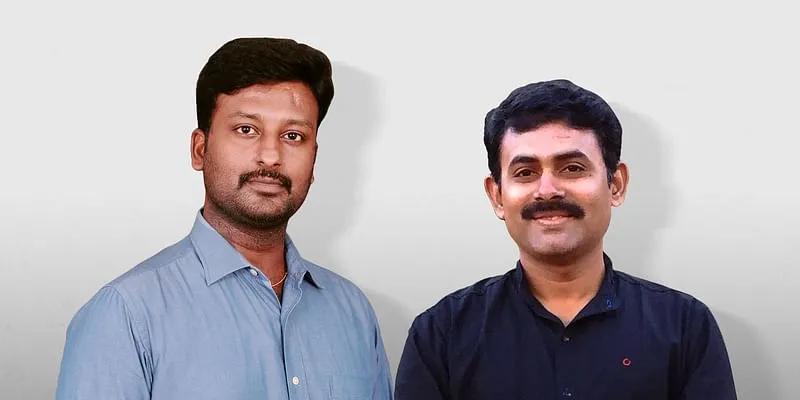5 Indian cybersecurity startups that offer high-quality security solutions
Amid the COVID-19 pandemic and the spread of remote working, the need for security solutions has soared. YourStory lists five homegrown cybersecurity startups that offer solutions - and peace of mind - to enterprises.
The COVID-19 pandemic has forced people to stay at home. With that, there has been a large-scale shift towards remote working for most enterprises.
In this new normal, several companies – big and small – have become a potential target for cyber criminals, who would lure internet users to steal sensitive data and information.
“Nearly 50 percent of all security attacks are targeted at small and medium businesses, many of which go out of business after being subjected to one such incident,” notes Bengaluru-based cybersecurity startup Seconize.

Image Source: Shutterstock
Amidst the pandemic, a lot of enterprises and government entities have started adopting cybersecurity measures. Experts believe this demand for cybersecurity solutions is likely to grow as cyber criminals continue to capitalise on the pandemic for financial gain, geopolitical supremacy, and reputational motives.
According to a report by -DSCI, the Indian cybersecurity services industry is expected to grow at a CAGR of about 21 percent to touch $13.6 billion by 2025.
NASSCOM President Debjani Ghosh said cybersecurity is going to be the foundation on which the post-COVID IT industry will be built.
Keen to know more about made-in-India cybersecurity startups? YourStory lists five homegrown startups that are offering lasting cybersecurity solutions to enterprises.
Wijungle
Jaipur-based cybersecurity startup helps enterprises do away with multiple products like routers, load balancer, VPN servers, firewalls, guest management solutions, and proxy servers, among others, and deploy only one to secure all networks.
Karmesh Gupta, CEO and Co-founder, Wijungle, says, "Within the last two years, Wijungle, as an individual player, has grown from a single nation to 27 nations. Our yearly growth rate has been 500 percent. Being an initiative under ‘Make in India,’ WiJungle, a prominent player in Unified Network Security space, has emerged as the government’s new face of cybersecurity.”

Karmesh Gupta, Co-Founder and CEO, WiJungle
Founded in April 2017 by Karmesh Gupta, along with cousin Praveen Gupta, Wijungle develops and markets ‘Unified Network Security Gateway’ across industry verticals like hospitality, healthcare, education, BFSI, retail, defense, transportation, and ITES, among others.
It provides secured networks for clients like the Ministry of Defence, Ministry of Agriculture, Airport Authority Of India, Aljazeera Airways, People Interactive, Hyatt, Royal Orchid Hotels, Lemon Tree Hotels, MRS Group, NALCO, The Fern, Centre for Incubation & Business Acceleration, Goa, and Motion Kota, to name a few.
Founded in 2012 by Saket Modi, Rahul Tyagi, and Vidit Baxi, Lucideus came up with a real-time cybersecurity assessment and monitoring platform for enterprises called SAFE.
SAFE is a pioneer in the Cyber Risk Quantification (CRQ) space, and allows organisations to measure and mitigate cyber risks in real time.

Lucideus Technologies’s CEO and Co-founder Saket Modi
The supervised machine learning (SML) engine of SAFE gives an output in the form of a score (between zero-five) and the dollar value risk an organisation faces, along with providing prioritised actionable insights based on technical cybersecurity signals, external threat intelligence, and business context of what and where are the ‘weakest links’ across people, process, and technology.
The Delhi-based startup was incubated from IIT-Bombay in 2012, and is now headquartered in Palo Alto, California.
Rahul Tyagi, Co-founder, Lucideus, says, “We help multiple Fortune 5000 companies measure and mitigate cyber risks in real time through our platform SAFE. The quarter ending June 2020 has been one of the best quarters for our startup. However, while order and revenue bookings are at an all-time high, cash collection has been a challenge; this is a problem for every organisation now.”
It has over 160 clients across India and globally. Some of its clients in India include Delhi Airport (GMR), , Yatra.com, TrueCaller, Dish TV, National Payments Corporation of India (NPCI), ICICI Bank, HDFC Bank, Kotak Mahindra Bank, Mumbai Airport, and Tata Sky.
Aristi Labs
Bhopal-based offers security solutions to help businesses protect data and intellectual property.
Founded in 2016 by Utkarsh Bhargava, the startup's core product ‘Securign’ provides a security information and event management platform (SIEM) to help businesses with threat detection capabilities across cloud and on-premises landscape. It aims to help businesses eliminate security blind spots and regain control over shadow IT.

Utkarsh Bhargava, Co-founder and CTO, Exploit Hunters
Earlier this month, the startup announced a merger and acquisition deal with Portugal-based cybersecurity startup Exploit Hunters. Utkarsh explained that the technical operations of Exploit Hunters will now take place in India from Bhopal.
“We are planning to set up state-of-the-art cybersecurity operations and research centre in Bhopal. We also plan to hire over 350 cybersecurity professionals in the city by the end of 2020,” the founder says.
The bootstrapped startup, which counts the Indian Army as one of its clients for the Securign software, is now looking at expanding its business to the US and European markets.
Incorporated in 2018 by ex-Zoho executives Balasubramanian Venkatramani and Kumaran Balan, cybersecurity startup Securden aims to solve the fundamental IT infrastructure access security challenges faced by IT, operations, and security teams in enterprises by preventing cyber attacks, insider exploits, and malware propagation.
Balasubramanian Venkatramani, Co-founder and CEO of Securden, says, "Most existing solutions are complicated, expensive, disjointed, and rely heavily on consultancy services. Securden stands for simplicity, change, choice, and affordability in cybersecurity, even for the smallest organisation.”

Securden Founders
Amidst the lockdown, the Securden suite caters to the needs of the remote workforce too. It offers a remote access solution for IT staff and an end-point permissions management tool for remote employees that together make remote work secure and productive.
Earlier this month, the Chennai and US-based startup raised $1.2 million in a seed investment round led by Accel, along with Girish Mathrubootham, Founder and CEO of Freshworks; ; Manav Garg, Founder and CEO of Eka1.com; and CaratLane CEO Mithun Sacheti. The startup will use the funding to expand its marketing, R&D, and customer support.
Founded in 2013 by NIT-Allahabad alumni Pavan Kushwaha (CEO), Paratosh Bansal (CTO), and Dip Jung Thapa (COO), cybersecurity startup Kratikal was incubated under the Ministry of Telecom, recognised under Startup India, and counted as one of the top six startups in the NASSCOM Product Conclave showcase 2018.
Since inception, Kratikal has launched various innovative security solutions to tackle the growing threats and risks in cyberspace. These include ThreatCop, an artificial intelligence and machine learning-based simulation product designed for employee risk assessment and cyber awareness, and KDMARC, an email authentication and anti-spoofing tool that aims to address cyber threats posed by email-based attacks.
Currently, the startup serves more than 100-plus clients, including Kotak Mahindra Bank, Aditya Birla Capital, Himalaya Wellness, PVR Cinemas, Fortis Healthcare, Cars24, Pine Labs, and Drivezy, among others.
With offices in Noida, Mumbai, and Bengaluru, the startup is now looking to expand its footprint to three more cities – Hyderabad, Chennai, and Pune – within the next two months.
Edited by Suman Singh






![[Funding alert] Lucideus raises $7M led by Japan's MS&AD Ventures](https://images.yourstory.com/cs/wordpress/2018/12/Saket.png?fm=png&auto=format&h=100&w=100&crop=entropy&fit=crop)

![[Funding alert] Cybersecurity startup Securden raises $1.2M from Accel, Freshworks founder, others](https://images.yourstory.com/cs/2/70651a302d6d11e9aa979329348d4c3e/Imagez3uz-1594101643950.jpg?fm=png&auto=format&h=100&w=100&crop=entropy&fit=crop)